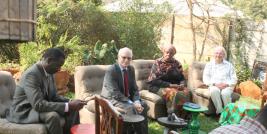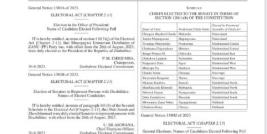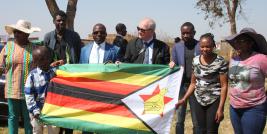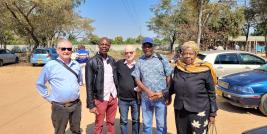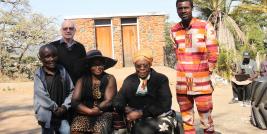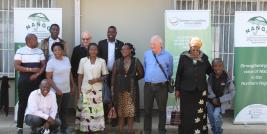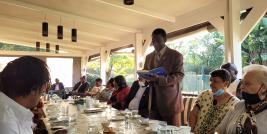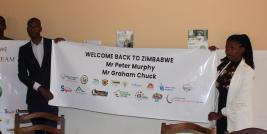Cyclone Idai devastated the north-eastern part of Zimbabwe as well as Beira in Mozambique. Its impact exposed the weakness of the Zimbabwe economy and its government resources, and at the same time demonstrated the resilience of civil society to give practical solidarity. While the emergency response from the police and military was initially absent, these resources were also deployed properly when they came online, and with good cooperation with the civilian effort. There is a huge task ahead to rehabilitate Chimanimani, but this experience shows it could be done. The political resilience of Zimbabwe society is being sorely tested, but an important moment is coming with the MDC Congress due on May 24 to elect a new President. Since it appears that Nelson Chamisa will be uncontested at the Congress, due to the outcomes of Provincial Congresses, it is possible that a new democratic political party will emerge.
However, interim MDC President Nelson Chamisa has apparently dropped his ludicrous preconditions for a dialogue with Zimbabwe President Emmerson Mnangagwa, asking for a meeting via Twitter.
Meanwhile, the torrid economic situation continues to get worse as the new local currency continues to slide against the US dollar, rapidly inflating prices for basic goods, and fueling continuous demands for wage increases. Profiteering from manipulation of hard currency availability also continues to undermine economic management. The government’s austerity program is boosting the state budget, but crippling the economy.
The Mnangagwa government continues to meet economic protests with repression, as in the case of the Zimbabwe Congress of Trade Union arrestees, and the persecution of teacher union leaders. This dynamic is making any progress in a national dialogue for recovery too slow and disrupted to make a difference so far.
The international community, including supportive South Africa, is not offering economic support despite the dire situation, as it is so evident that the government’s anti-corruption drive is half-hearted, the modest recommendations of the election observer groups are not implemented, and commercial farms continue to be expropriated. One positive development is the opening of hearings about the 1980s Gukurahundi massacres, under the auspices of the National Peace and Reconciliation Commission.
Zimbabwe Information Centre, Australia
April 28, 2019

